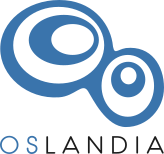Apart from Oslandia’s participation at FOSS4G 2014 in Portland, a lot of topics have been discussed during this week of conference.
Presentation’s slides and videos are being put online and you can replay the whole conference if you could not attend, but here is a really short summary of a few things we noticed during the five days.
- `Fiona and Rasterio are now mature modern GIS Python libraries on top of GDAL/OGR, and are continuously improved.
- WebGL is all around the place. With new support from the various browser’s editors, this is definitly the backend of choice for large data rendering on online maps. This is still the exploration phase though, and there is currently no definite solution for webgl mapping, as things are evolving really fast and use cases appear.
- Use cases for Opensource GIS software continue to grow larger. It even goes to space with PlanetLabs satellite constellation !
- OpenLayers 3 and Leaflet are the two client libraries of choice, with distinct use cases, but an excellent quality for both
- Design is here, for the good sake of our eyes and user experience. This is the first time that a specific track is fully dedicated to maps design.
- Vector strikes back ! With the evolution of browser’s technologies, vector data is gaining momentum. Vector tiles are a natural evolution for this, and formats and standards start to emerge. More performance, less space, and a door open for new end-user features
- Following the vector movement, symbology also evolves to become dynamic. What if those colors nicely blend from one to another, and the thickness of these lines are controlled by a function of the zoom level ? Better UX !
- GIS involves large dataset, and opensource software are now ready to crunch these teràbytes of data. Be it for mosaïcking rasters for the whole world, machine learning to predict climate change, or distributed data analysis, data size limits continue to be pushed further.
- Well-known OpenSource components continuously gain features: Mapserver, QGIS, GDAL/OGR, PostGIS improve from version to version
- CartoDB raised 8 million USD and continues to grow
- A large part of the Mapbox team was present and showed various technologies which are at the bleeding edge of online mapping
- A lot of various large organization were present, and we can notice TriMet, US DoD, Amazon (sponsor), GitHub, ESRI, RedHat… Big players are in the place too
FOSS4G is technical and at the same time user-oriented. It gathers the opensource community and industrials as well as academics. This is the best way to foster an intense brainstorming and create new ideas, visions and technologies.
Do not hesitate to check the videos, and give us your favorites, twitting @oslandia or mail us on any of these subjects at infos@oslandia.com !

